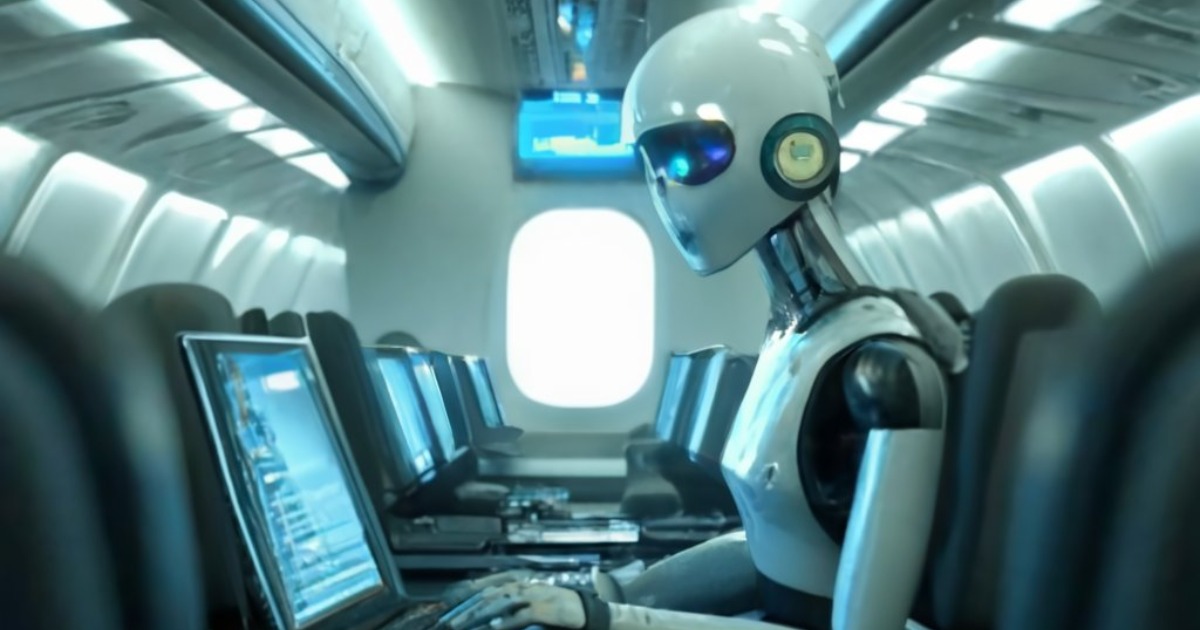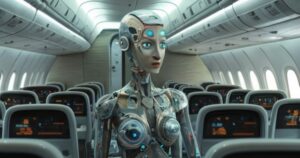In the current world of travel and hospitality artificial intelligence (AI) is a crucial part causing a revolution in how businesses run and connect with customers. AI chatbots have become important tools that make customer service better, make operations smoother, and enhance the overall experience of guests. This article looks into the different parts of AI chatbots in the travel and hospitality industry studying their roles, uses, and ability to revolutionize customer service.
What is the Role of AI in the Travel and Hospitality Industry?
AI has changed the travel and hospitality industry by making processes automated making customer interactions better, and giving personalized experiences. Essential roles of AI in this area include:
- Personalization: AI algorithms study customer likes and actions to give personalized suggestions and services.
- Automation: Regular jobs such as reservations, check-ins, and answering customer questions are handled allowing human workers to focus on tougher tasks.
- Data Analysis: AI-guided data analytics aid businesses in noticing trends foreseeing customer requirements, and improving processes.
Can I Use Chatbot for Customer Service?
Chatbots are popular for customer service in many sectors, like travel and hospitality. They provide many advantages:
- 24/7 Availability: Chatbots offer support all the time ensuring customer questions get quick answers, no matter the time zone.
- Cost Efficiency: Using chatbots to automate customer service lowers the money needed to keep big staff teams.
- Consistency: Chatbots give the same answers reducing mistakes and making customers happier.
What are the Uses of Chatbots in the Hospitality Industry?
In the hospitality sector, chatbots have many uses:
- Reservation Management: Chatbots manage bookings, changes, and cancellations well.
- Personalized Recommendations: They offer suggestions such as spa treatments, dining choices, and local spots depending on guest preferences.
- Concierge Services: Chatbots serve as virtual concierges giving details about hotel features nearby spots, and travel advice.
- Feedback Collection: They collect guest feedback and reviews aiding businesses to enhance their services.
What is Generative AI in the Travel and Hospitality Industry?
Generative AI, a branch of artificial intelligence, is involved in creating new content or responses from existing data. In the travel and hospitality industry generative AI is used to:
- Generate Itineraries: Following user preferences generative AI can produce personalized travel itineraries suggesting destinations, activities, and places to stay.
- Content Generation: AI can create engaging materials for marketing like blog entries social media updates, and promotional materials.
- Virtual Assistants: AI-driven virtual assistants can mimic real discussions improving client interaction and satisfaction.
How Can AI Be Used in Travel?
AI has a diverse and significant role in the travel sector.
- Smart Booking Systems: AI improves booking platforms by offering tailored suggestions and variable prices based on immediate data.
- Travel Planning: AI tools assist travelers in organizing their journeys by recommending destinations, paths, and activities suited to their likes.
- Predictive Analytics: AI forecasts travel patterns shifts in demand, and client inclinations letting businesses refine their offerings and marketing approaches.
- Fraud Detection: AI programs identify and stop fraud in transactions making sure bookings are safe and dependable.
How to Use AI in the Hotel Industry?
Hotels use AI to make guest experiences better and operations smoother:
- Automated Check-ins: AI devices and apps make check-in and check-out easy and fast.
- Room Service: AI chatbots let guests order room service ask for amenities, or tell about problems making sure they get quick and effective help.
- Energy Management: AI controls energy in hotel rooms changing lights, temperature, and other settings based on who is there.
- Guest Profiling: AI looks at guest information to make profiles, which helps in giving personalized services like room choices, food options, and suggestions for activities.
How Artificial Intelligence is Used to Improve Customer Service in the Hospitality Industry?
AI has a big influence on improving customer service in the hospitality industry through:
- Predictive Maintenance: AI watches and forecasts maintenance needs stopping equipment failures and ensuring smooth operations.
- Personalized Interactions: AI-driven insights allow personalized guest interactions building loyalty and satisfaction.
- Real-time Assistance: AI chatbots give immediate help with inquiries, reservations, and complaints enhancing guest experience.
- Language Translation: AI-powered translation tools help communicate with international guests removing language barriers.
How Does Marriott Use AI?
Marriott International is a leader in using AI technologies to improve its services.
- Chatbot Integration: Marriott uses AI chatbots to handle customer questions, provide booking help and personalized suggestions through its mobile app and website.
- Data Analytics: AI studies guest information to foresee tastes better pricing methods, and improve marketing efforts.
- Facial Recognition: Marriott has introduced AI-driven facial recognition to make check-in faster shorten wait periods and enhance guest comfort.
- Personalized Offers: AI tools assist Marriott in creating tailored offers and loyalty programs, which help keep customers and increase their happiness.
Can AI Replace Humans in the Hospitality Industry?
While AI provides major benefits, it is not likely to totally replace humans in the hospitality industry. Important points to think about include:
- Human Touch: Personal talking and understanding are important in hospitality. AI cannot copy the warmth and insight of human workers.
- Complex Problem-solving: AI is good at doing regular tasks but hard problems that need advanced thinking and emotional skills still need people.
- Supplementary Role: AI should be a tool that makes human abilities stronger, improving speed and customer care but not taking the place of humans.
Best AI Chatbots for Travel and Hospitality Customer Service
Many AI chatbots work well in the travel and hospitality field.
- Booking.com’s Chatbot: It gives round-the-clock customer help assisting people with booking, changing, and learning about travel.
- Hilton’s Connie: An AI-powered concierge that helps visitors with details about the hotel nearby attractions, and services.
- Expedia’s Chatbot: It presents personalized travel suggestions booking help, and customer help on many platforms.
- Dorothy: A travel assistant chatpad that assists users in finding flights, hotels, and travel deals offering a smooth booking process.
Travel Chatbot Examples
Travel chatbots are growing in use because they make customer experiences better. Key examples include:
KLM’s BlueBot (BB): This AI assistant helps customers book flights, get travel details, and receive updates in real-time.
Lola: This chatbot arranges travel, makes bookings, and offers support for business travelers.
TravelBuddy: A chatbot that gives details about destinations, offers travel tips, and suggests custom itineraries.
AI Chatbots in Tourism Industry
In the tourism sector, AI chatbots have a crucial influence.
Tour Planning: Chatbots suggest custom tour options itinerary ideas, and travel suggestions tailored to user likes.
Language Assistance: AI translation helps tourists talk to local service providers making trips better.
Customer Engagement: Chatbots talk to possible tourists on social media and websites. They give information and help make bookings.
Feedback Management: AI chatbots gather and study tourist feedback helping companies make their services better and their customers happier.
Conclusion
AI chatbots are causing a revolution in travel and hospitality by turning customer service into a machine-led task providing services that fit each person, and making operations smoother. They manage bookings, offer specific suggestions, and make guest interactions better. As AI keeps getting better, its uses in the travel and hospitality field will get broader leading to new developments and changing how companies and customers connect.



